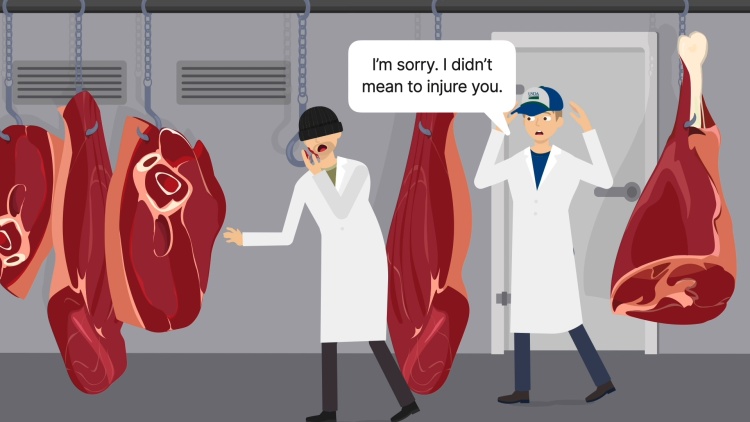Lambertson v. United States
United States Court of Appeals for the Second Circuit
528 F.2d 441 (1976)
- Written by Lauren Petersen, JD
Facts
Richard Lambertson (plaintiff) worked at a plant in Syracuse, New York. He was unloading a meat shipment at the plant’s receiving dock when William Boslet jumped on his back, pulled his wool cap over his eyes, and screamed, “boo.” Lambertson fell forward and hit his face on some nearby meat hooks, seriously injuring his mouth. Boslet apologized to Lambertson, and witnesses to the incident agreed that Boslet had not intended to injure him. Boslet was a meat inspector working for the United States Department of Agriculture (USDA). Lambertson sued the United States under the Federal Tort Claims Act (the act), 28 U.S.C. § 1346(b). The act allows civil suits against the federal government for injuries caused by the negligence of federal employees acting within the scope of their employment. However, the act expressly prohibits suits for injuries from assaults or battery. The trial court dismissed Lambertson’s suit, reasoning that Boslet’s behavior was not actionable under the act because it constituted a battery. Lambertson appealed, arguing that the injuries he suffered from Boslet were the result of Boslet’s negligence, because Boslet did not intend to hurt Lambertson.
Rule of Law
Issue
Holding and Reasoning (Van Graafeiland, J.)
Concurrence (Oakes, J.)
What to do next…
Here's why 907,000 law students have relied on our case briefs:
- Written by law professors and practitioners, not other law students. 47,100 briefs, keyed to 996 casebooks. Top-notch customer support.
- The right amount of information, includes the facts, issues, rule of law, holding and reasoning, and any concurrences and dissents.
- Access in your classes, works on your mobile and tablet. Massive library of related video lessons and high quality multiple-choice questions.
- Easy to use, uniform format for every case brief. Written in plain English, not in legalese. Our briefs summarize and simplify; they don’t just repeat the court’s language.







